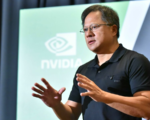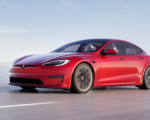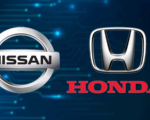Bosch and Tenstorrent Forge Partnership to Standardize Automotive Chip Development

German industrial powerhouse Bosch is joining forces with U.S. chip startup Tenstorrent to spearhead an initiative aimed at standardizing the building blocks of automotive chips. This partnership is set to revolutionize the way modern vehicles are powered and controlled, addressing the growing complexities of automotive electronics. According to Tenstorrent executives, the collaboration will focus on creating a standardized methodology for utilizing “chiplets,” a modular approach that allows for flexibility and efficiency in chip design.
Chiplets, which are small, self-contained units of silicon that can be combined in various configurations, represent a significant advancement in semiconductor technology. By developing a standardized platform for these chiplets, Bosch and Tenstorrent aim to create systems capable of meeting the diverse and evolving needs of modern vehicles. David Bennett, Tenstorrent’s chief customer officer, emphasized that the goal is to enable the automotive industry to rapidly adapt to new technologies, such as electric vehicles and autonomous driving features, without incurring excessive costs.
The partnership is expected to significantly streamline the development process for automotive chips. By enabling manufacturers to mix and match different quantities and types of chiplets, Bosch and Tenstorrent will facilitate the creation of custom processors tailored to specific vehicle requirements. This not only reduces the costs associated with chip production but also accelerates the time-to-market for new silicon products, allowing automakers to respond swiftly to changing consumer demands and technological advancements.
As the automotive sector continues to embrace smart technology, the collaboration between Bosch and Tenstorrent could set new standards for the industry. The two companies plan to leverage their respective expertise to innovate in chip design and manufacturing, ensuring that the resulting products are not only efficient but also capable of supporting the latest features in vehicle connectivity and performance. This partnership could pave the way for more versatile and powerful automotive systems, marking a new era in the integration of technology and transportation.





















